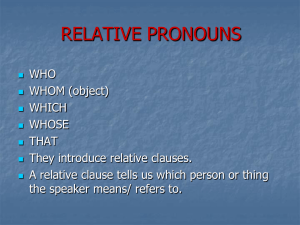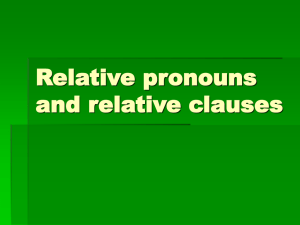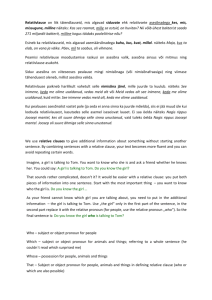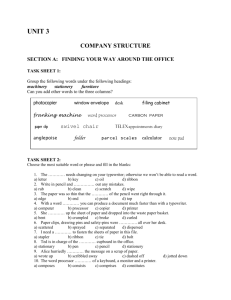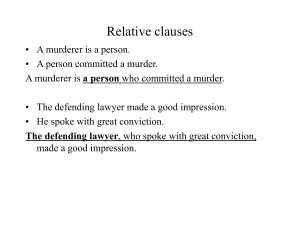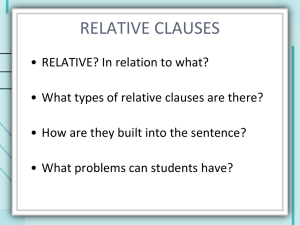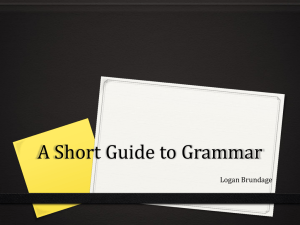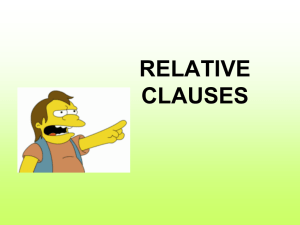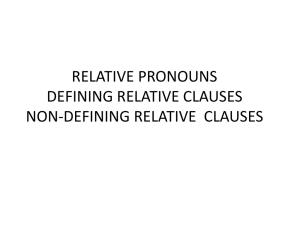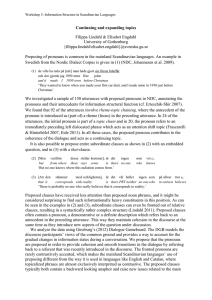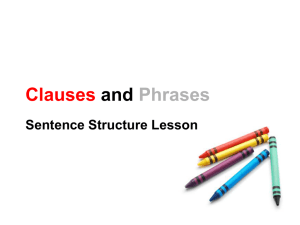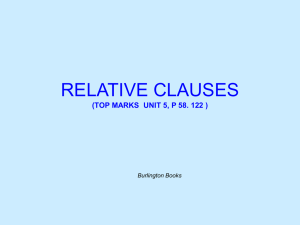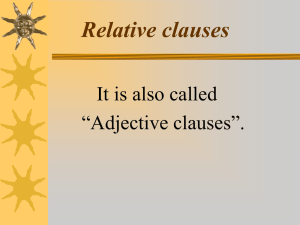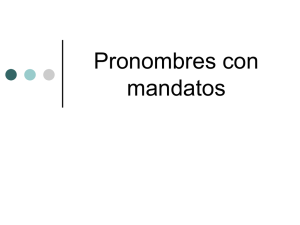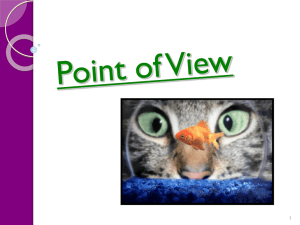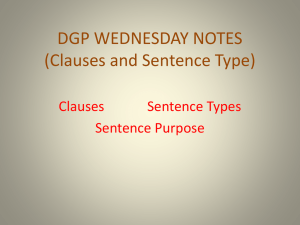Relative clauses and pronouns
advertisement
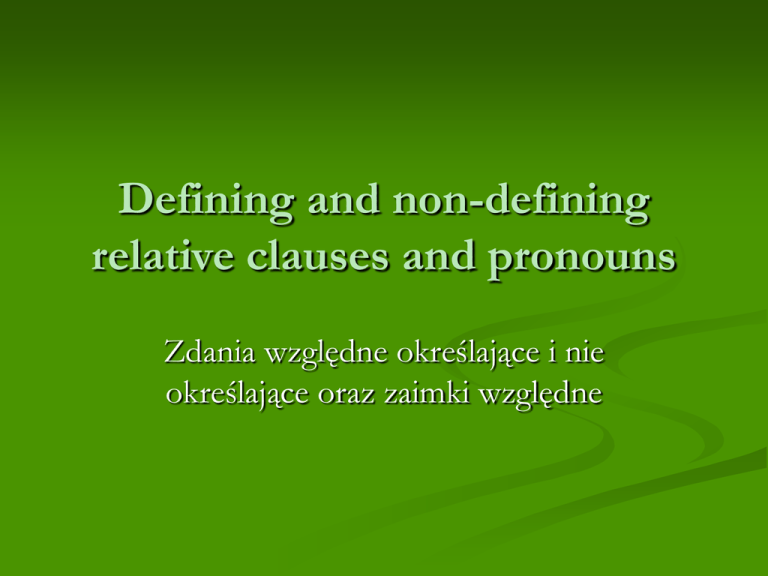
Defining and non-defining relative clauses and pronouns Zdania względne określające i nie określające oraz zaimki względne defining relative clauses Defining relative clauses give detailed information defining a general term or expression. We don’t use commas. Imagine, Tom is in a room with five girls. One girl is talking to Tom and you Ask somebody whether he knows this girl. Here the relative clause defines which of the five girls you mean. Do you know the girl who is talking to Tom? Object pronouns in defining relative clauses can be dropped. The boy (who/whom) we met yesterday is very nice. non-defining relative clauses Non-defining relative clauses give additional information on something, but do not define it. We use commas. Imagine, Tom is in a room with only one girl. The two are talking to each other and you ask somebody whether he knows this girl. Here the relative clause is non-defining because in this situation it is obvious which girl you mean. Do you know the girl, who is talking to Tom? In non-defining relative clauses, who/which cannot be replaced with that. Object pronouns in non-defining relative clauses must be used. Jim, who/whom we met yesterday, is very nice. relative pronouns Who - subject or object pronoun for people I told you about the woman who lives next door. Which - subject or object pronoun for animals and things Do you see the cat which is lying on the roof? Which - referring to a whole sentence He couldn’t read which surprised me. Whose - possession for people animals and things Do you know the boy whose mother is a nurse? relative pronouns Whom - object pronoun for people, especially in non-defining relative clauses I was invited by the professor whom I met at the conference. That - subject or object pronoun for people, animals and things in defining relative clauses (who or which are also possible) I don’t like the table that stands in the kitchen. relative adverbs A relative adverb can be used instead of a relative pronoun plus preposition. This is the shop in which I bought my bike. → This is the shop where I bought my bike. When (in/on which) refers to a time expression Where (in/at which) refers to a place Why (for which) refers to a reason difference in meaning Mr. Brown has a sister who got divorced two weeks ago. Mr. Brown has a sister, who got divorced two weeks ago. In the first sentence Mr. Brown has more than one sister and one of them got divorced. In the second sentence he has only one sister who got divorced. Relative clauses and pronouns http://www.ego4u.com/en/cramup/grammar/relative-clauses/exercises?02 http://www.ego4u.com/en/cramup/grammar/relative-clauses/exercises?04 http://www.ego4u.com/en/cramup/grammar/relative-clauses/exercises?07
